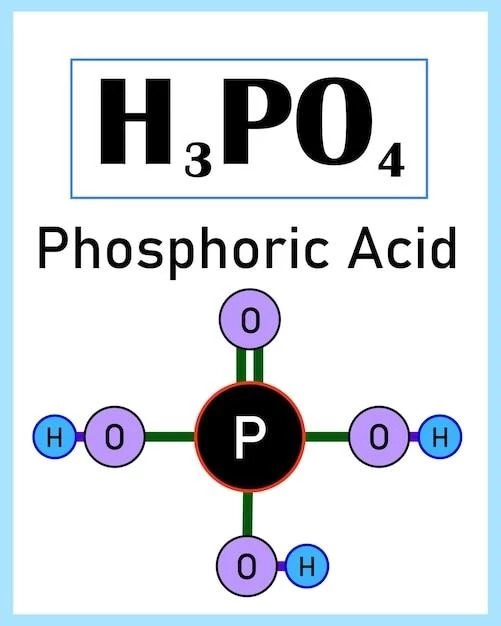Introduction to Phosphoribosylpyrophosphate synthetase deficiency
Ribose-phosphate diphosphokinase is an enzyme that converts ribose 5-phosphate into phosphoribosyl pyrophosphate (PRPP), vital in nucleotide synthesis.
Ribose-phosphate diphosphokinase, also known as phosphoribosyl pyrophosphate synthetase, is a crucial enzyme in nucleotide synthesis. This enzyme plays a vital role in converting ribose 5-phosphate into phosphoribosyl pyrophosphate (PRPP), which is essential for the production of purine and pyrimidine nucleotides, coenzymes, and amino acids. The activity of phosphoribosyl pyrophosphate synthetase is fundamental for various metabolic pathways, including nucleotide biosynthesis and cofactor production. Understanding the importance and function of this enzyme is crucial in elucidating the impact of its deficiency on cellular processes.
Overview of the importance of Phosphoribosylpyrophosphate synthetase
Ribose-phosphate diphosphokinase, known as phosphoribosyl pyrophosphate synthetase, is essential for nucleotide synthesis, playing a critical role in various metabolic pathways. Understanding its significance is key in addressing deficiency implications.
Explanation of X-linked inheritance in Phosphoribosylpyrophosphate synthetase deficiency
Phosphoribosylpyrophosphate synthetase deficiency, associated with the PRPS1 gene٫ follows an X-linked recessive pattern of inheritance. Understanding this mode of transmission is crucial for genetic counseling and risk assessment.

Genetic Basis and Inheritance Patterns
Phosphoribosylpyrophosphate synthetase deficiency is linked to the PRPS1 gene, following an X-linked recessive inheritance pattern. Understanding the genetic basis is essential for risk assessment.
Discussion on the different clinical syndromes associated with PRPS1 deficiency
PRPS1 deficiency can lead to various clinical syndromes, including X-linked non-syndromic sensorineural deafness, X-linked Charcot-Marie-Tooth neuropathy type 5, and Arts syndrome. Understanding these syndromes is vital for proper diagnosis and management.
Clinical Manifestations of PRPS1 Deficiency
Understanding the different clinical syndromes associated with PRPS1 deficiency is crucial for accurate diagnosis and effective treatment planning.
Overview of diagnostic tools and techniques used to identify PRPS1 deficiency
Diagnosing PRPS1 deficiency involves genetic testing to identify mutations in the PRPS1 gene. Additionally٫ biochemical analysis٫ enzyme assays٫ and molecular testing are used to confirm the deficiency.
Diagnosis and Screening Methods
To diagnose PRPS1 deficiency, genetic testing is crucial to identify mutations in the PRPS1 gene. Enzyme assays and molecular testing are used to confirm the deficiency accurately.
Information on current therapeutic approaches for managing PRPS1 deficiency
Therapeutic options for managing PRPS1 deficiency involve various strategies tailored to the specific clinical manifestations. Current approaches focus on symptom management٫ optimizing quality of life٫ and potentially addressing metabolic imbalances associated with the condition. Collaborating with a multidisciplinary healthcare team can help devise a personalized treatment plan to effectively manage the diverse symptoms and complications of PRPS1 deficiency.
Impact on Metabolic Pathways
Phosphoribosylpyrophosphate synthetase deficiency affects nucleotide metabolism, impacting pathways crucial for nucleotide, coenzyme, and amino acid synthesis. Understanding these metabolic disruptions is essential for managing the condition.
Treatment Options for Phosphoribosylpyrophosphate synthetase deficiency
Current therapeutic approaches for managing PRPS1 deficiency involve targeted strategies to address symptoms and optimize the quality of life for affected individuals. Collaboration with healthcare professionals is essential for personalized treatment plans.
Research and Developments in PRPS1 Deficiency
Continual research in PRPS1 Deficiency focuses on understanding the genetic complexities and developing innovative treatments to improve patient outcomes.
Ongoing advancements in understanding and treating Phosphoribosylpyrophosphate synthetase deficiency are vital for developing more effective therapeutic strategies and improving patient outcomes in the future.
Differentiation from Other Disorders
Understanding the distinctions between PRPS1 deficiency and similar genetic conditions is crucial for accurate diagnosis and tailored treatment approaches.
Highlighting key distinctions between PRPS1 deficiency and similar genetic conditions
Recognizing the unique characteristics of PRPS1 deficiency compared to other genetic disorders is crucial for accurate diagnosis and targeted treatment strategies. Understanding these differences can lead to improved outcomes for individuals affected by PRPS1 deficiency.

Management of Symptoms and Complications
Effective management strategies can help address symptoms and complications of Phosphoribosylpyrophosphate synthetase deficiency, enhancing the quality of life for affected individuals.
Guidance on addressing specific symptoms and potential complications of PRPS1 deficiency
Thank you for the information provided.
Future Perspectives and Areas of Study
Continual research is essential to enhance the understanding and treatment of Phosphoribosylpyrophosphate synthetase deficiency, aiming to improve patient care and outcomes.
Exploration of potential research directions and emerging trends in the field of Phosphoribosylpyrophosphate synthetase deficiency
The information provided from the Internet indicated that Phosphoribosylpyrophosphate synthetase (PRS) deficiency is a rare metabolic condition resulting from mutations in the PRPS1 gene٫ leading to various clinical syndromes. Differentiating PRPS1 deficiency from other genetic disorders is essential for accurate diagnosis and personalized treatment pathways. Research in understanding and managing PRPS1 deficiency continues to evolve٫ focusing on improving therapeutic strategies and patient outcomes. Further exploration into potential research directions and emerging trends in this field is crucial for advancing knowledge and enhancing care for individuals affected by PRPS1 deficiency.
